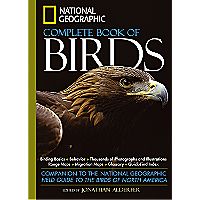
Have you found yourself in the position of baby bird caregiver? In feeding wild baby birds, you have a few different options available. To aid you in feeding these birds in need, you can use a variety of tools to deliver the food. Tools to consider that are easily available include: tweezers, syringes, eyedroppers, small paint brushes, popsicle sticks, blunt toothpicks, your fingers and pipettes.Depending on what food or formula you're giving, pick the most suitable tool or a combination. The thickness of the food formula is usually dependant on the age of the bird so if you're feeding a group use a combination of tools that are most effective.
Young birds will readily reach out for food until they are full. Avoid over-feeding baby birds but remember they need frequent small feedings. If they are slow to take food, they may be full or too dehydrated to eat.
Also if a baby bird doesn't take food, it may be sick, nervous, or unaware that your gesture is a feeding attempt. In these cases, try taping the side of the nest or whistle lightly so as to mimic a parent birds arrival home.
Baby birds in the wild are naturally fed throughout the day. You'll want to do the same as the bird's caregiver. Generally hatchings should be fed every 20 minutes.
Young birds who are not babies can be fed every two hours. Try to give baby birds the same food they would naturally eat in the wild. You may need to research what that particular bird species normally eats. You may also call a local animal center to inquire about what food is appropriate or if a formula recipe is suitable for your particular bird. When feeding ensure that any food is cleaned up and not left to dry on the bird's feathers as this can cause skin problems or feather to fall off.
The goal of you as the caregiver of a baby bird, is to provide temporary care until the bird is well enough to survive in it's natural environment on it's own. Avoid interacting with bird other than at feeding and cleaning times. Also ensure that the bird is kept away from domestic animals including pet birds.I hope this helps you rehabilitate and feed the wild baby birds you find in need.
About the author:
Eve Duncan is a freelance writer, researcher and web publisher from Canada. To get other tips about birds and squirrel problems, visit Squirrelproofer.com where you can also learn squirrel proof bird feeders. Article Source: http://www.free-articles-zone.com/

No comments:
Post a Comment